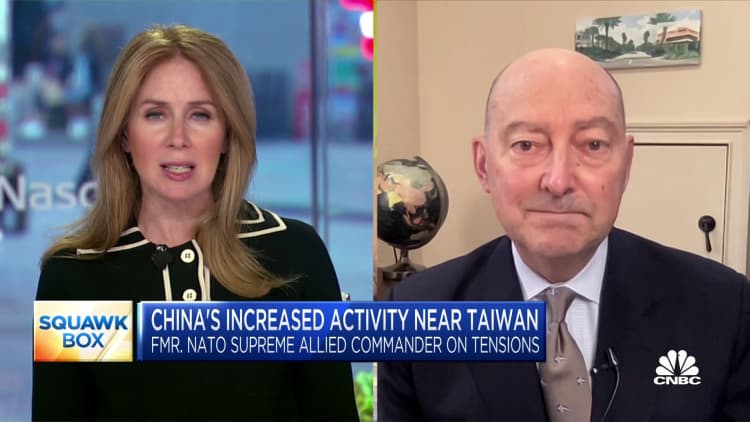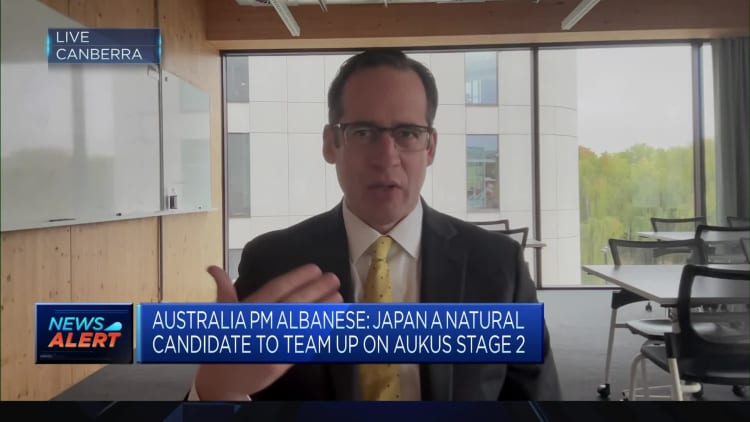US President Joe Biden delivers remarks on the Australia-United Kingdom-United States Partnership (AUKUS) while Prime Minister Rishi Sunak of the United Kingdom and Prime Minister Anthony Albanese of Australia at Naval Base Point Loma in San Diego, California, USA, participate.
Tayfun Coskun | Anadolu Agency | Getty Images
The trilateral defense and security pact between Australia, Britain and the US – commonly referred to as AUKUS – will not trigger a nuclear arms race in the Indo-Pacific region, the US Under Secretary of State for Arms Control and International Security has said.
The security framework aims to strengthen stability and not “create a problem,” Ambassador Bonnie Denise Jenkins said at a media briefing on Tuesday. “There is some misinformation about the purpose of AUKUS and what we are trying to do.”
The AUKUS Alliance was founded in 2021 to address common regional concerns about China’s growing military power and influence. This included, among other things, Australia’s acquisition of nuclear submarines as part of defense cooperation.
China reacted at the time and warned of the danger of an arms race and the proliferation of nuclear weapons.

“It is very important that countries understand that this is not about starting a race, but an arms race of any kind. Nuclear submarines are permitted under the Nuclear Non-Proliferation Treaty and Australia will not become a nuclear weapons state.” She added.
Jenkins said the alliance partners would continue to work with the International Atomic Energy Agency to ensure that “we do everything we can to achieve the highest operational standards in what we’re trying to do.”
China’s answer
China reiterated its warning in recent remarks that Western powers are provoking division in the AUKUS security pact and risking nuclear proliferation in the South Pacific.
“Through AUKUS, the United States aims to bring the development of nuclear submarines to the region, which violates the objectives of the South Pacific Nuclear Free Zone Treaty and poses serious risks of nuclear proliferation,” Foreign Ministry spokesman Wang Wenbin said at a news conference of the ministry.
He accused the US of “admitting more countries to the group under false pretenses” and added: “China has always opposed bloc confrontation in this region.”

Earlier this month, AUKUS defense ministers said they were considering cooperation with Japan under the second pillar of the AUKUS framework. Pillar 2 covers areas such as cyber, artificial intelligence, quantum technologies and underwater capabilities.
“Recognizing Japan’s strengths and its close bilateral defense partnerships with all three countries, we are considering collaborating with Japan on AUKUS advanced Pillar II capabilities projects,” the statement said.
Jenkins said there is no “timetable for Japan or any other country with which we are discussing further partnerships.”
“It is vital that we undertake a very deliberate process. These are conversations we will have with countries based on things we think are important in terms of what additional partners can bring to the table.”
Source link
2024-04-23 07:38:05
www.cnbc.com







